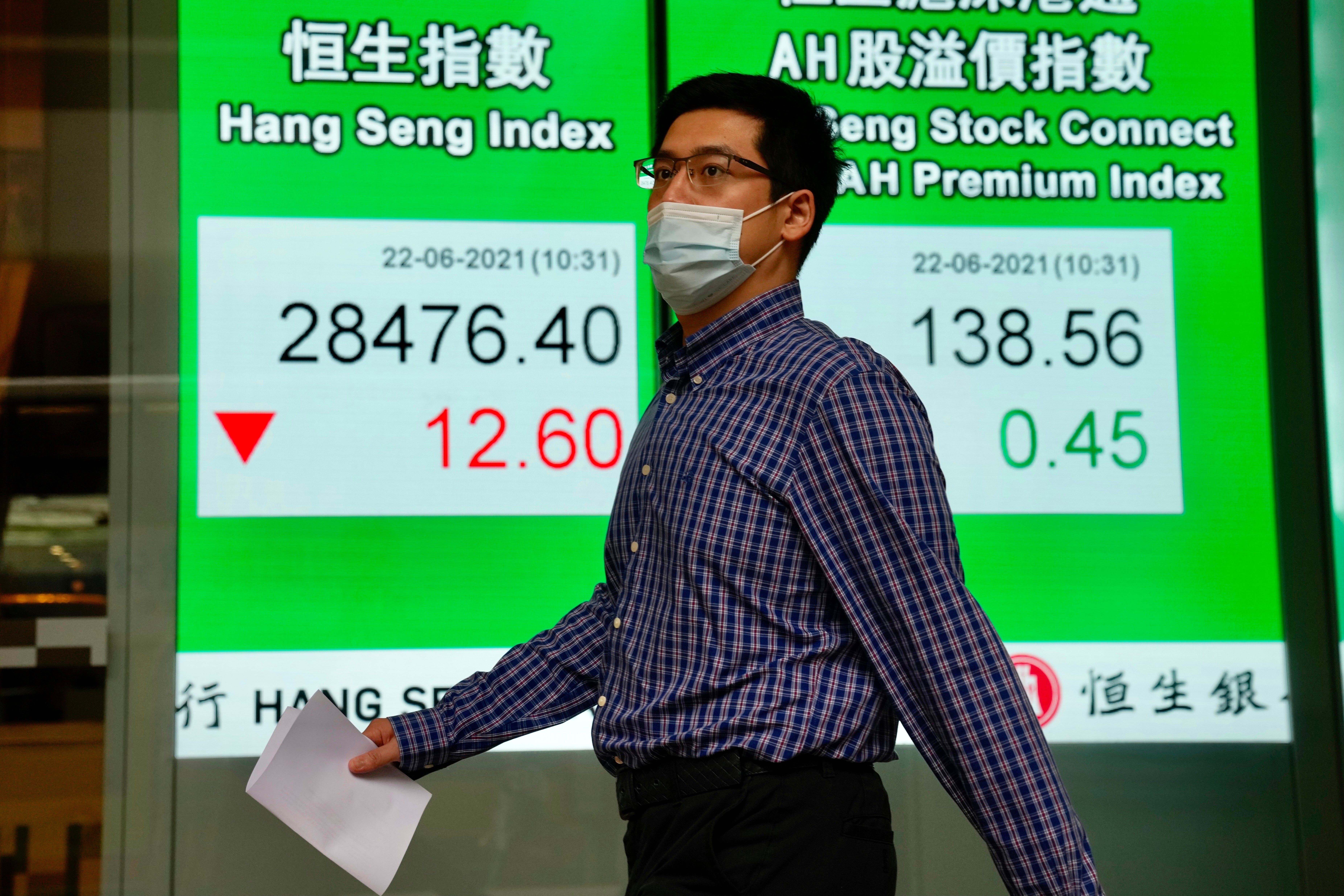Asian shares mixed after rebound on Wall Street
Asian shares have mostly rebounded from their retreat a day earlier, tracking a recovery on Wall Street

Your support helps us to tell the story
From reproductive rights to climate change to Big Tech, The Independent is on the ground when the story is developing. Whether it's investigating the financials of Elon Musk's pro-Trump PAC or producing our latest documentary, 'The A Word', which shines a light on the American women fighting for reproductive rights, we know how important it is to parse out the facts from the messaging.
At such a critical moment in US history, we need reporters on the ground. Your donation allows us to keep sending journalists to speak to both sides of the story.
The Independent is trusted by Americans across the entire political spectrum. And unlike many other quality news outlets, we choose not to lock Americans out of our reporting and analysis with paywalls. We believe quality journalism should be available to everyone, paid for by those who can afford it.
Your support makes all the difference.Asian shares were mostly higher on Tuesday, with most benchmarks tracking Wall Street's recovery from the Federal Reserve s reminder that it eventually will provide less support to markets.
Japan s benchmark Nikkei 225 jumped 3.1% in afternoon trading to 28,883.46. Australia's S&P/ASX 200 surged 1.5% to 7,342.20. South Korea's Kospi rose 0.8% to 3,265.00. Hong Kong's Hang Seng fell 0.2% to 28,419.58, while the Shanghai Composite gained 0.5% to 3,547.10.
Shares rose in India, Taiwan and Southeast Asia. U.S. futures also edged higher.
Federal Reserve Chair Jerome Powell says the economy is growing at a healthy clip, and that has accelerated inflation. In written testimony to be delivered at a congressional oversight hearing Tuesday, Powell reiterated his view that inflation’s recent jump to a 13-year high will prove temporary.
Powell’s remarks follow a meeting of the Fed’s policymaking committee last week, when central bank officials signaled they were prepared to raise rates earlier than they had previously suggested.
But despite the reassurance from Powell, renewed coronavirus outbreaks are clouding the outlook in much of Asia.
“Much of the region is dealing with renewed waves of COVID-19 infections. These waves, especially in the case of India, Indonesia and some other countries in Southeast Asia, are the most severe yet,” said Venkateswaran Lavanya at Mizuho Bank in Singapore.
On Monday, the S&P 500 snapped 1.4% higher, to 4,224.79, recovering nearly three-quarters of its worst weekly loss since February. Oil producers, banks and other companies that were hit particularly hard last week led the way.
The Dow Jones Industrial Average gained 1.8% to 33,876.97 and the Nasdaq composite rose 0.8%, to 14,141.48.
Investors are still figuring all the ramifications of the Fed’s forecast that may start raising short-term interest rates by late 2023. That’s earlier than previously thought. The Fed also began talks about slowing programs meant to keep longer-term rates low, an acknowledgment of the strengthening economy and threat of higher inflation.
The market’s immediate reaction to last week’s Fed news was to send stocks lower and interest rates higher. Higher rates would make stock prices, which have been climbing faster than corporate profits, look even more expensive than they do already.
But it’s not like the Fed said it will hike rates from their record low of nearly zero anytime soon.
“If markets are worried about a march back to more normal monetary and fiscal policy as the economy recovers, it will be a very long march,” Barings chief global strategist Christopher Smart said in a note. In the meantime, support from both the Federal Reserve and the U.S. government should continue to help stock prices, even if they do look expensive compared with history, he said.
Companies whose profits are the most closely tied to the economy’s strength and inflation were among the market's strongest on Monday.
Hess, Marathon Oil and Devon Energy all rose at least 6.9% as energy stocks rallied with the price of oil. Banks were also strong, with Bank of America up 2.5% and Wells Fargo climbing 3.7%.
High-growth companies able to flourish almost regardless of the economy lagged behind in a reversal from last week’s trend, when investors rattled by the Fed piled back into the biggest winners of the pandemic.
Amazon slipped 0.9%, and the lagging performance for tech meant the Nasdaq trailed other indexes.
In energy trading, benchmark U.S. crude oil gained 9 cents to $73.21 in electronic trading on the New York Mercantile Exchange. Brent crude, the international standard, gained 24 cents to $75.14 a barrel.
In currency trading, the U.S. dollar rose to 110.44 Japanese yen from 110.31 yen. The euro fell to $1.1900 from $1.1914.
___
AP Business Writers Damian J. Troise and Stan Choe contributed.